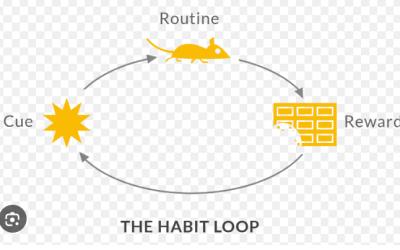Mother of Invention : how good ideas get ignored in a world built for men, is a very clever book. It manages to do one of my favourite things : to educate whilst at the same time entertaining. It’s author, Katrine Marcal, takes us on a journey through history with a viewing lens most of us have likely never used before when considering our history as the human species. That lens is a gender one, and Marcal uses it to show us that in a world shaped so robustly by gendered ideas and stereotypes, innovation suffers. Extraordinary ideas get ignored, or shelved for 5000 years, as in the case of the wheeled suitcase! Marcal argues that we underestimate the consequences of sexism on our everyday lives, and that in doing so, we are holding ourselves – both men and women – back. The theme of gender and invention runs throughout the book.
When the wheel finally got attached to the suitcase
The book opens in 1970, with the story of american Bernard Sadow, who worked in the luggage industry. Bernard has a moment of inspired genius whilst standing at the airport, sweating from the effort of carrying his family’s heavy suitcases. ‘’I know what luggage needs, wheels’’. And in this moment, Bernard invented a future where we all glided through the airports of the world with minimum effort exerted.
Wheels on suitcases. So obvious.
Marcal asks the question ‘’why did it take so long?’’
In the 1960s we were shooting men into space, and putting men on the moon, before it occurred to us to put wheels on suitcases.
The wheel itself had been invented 5000 years ago, and we were regularly attaching it to heavy things.
Sadow’s revolutionary product? Rejected by all major department stores.
Why?, you might ask from the comfort of today.
According to Sadow in a later interview ‘’at this time there was this macho feeling. Men used to carry luggage for their wives. It was .. the natural thing to do I guess’’.
Gendered history clue number 1. Market resistance had everything to do with gender, argues Marcal. The wheeled suitcase took off when society changed; when greater mobility became the norm for women and they had the freedoms to travel solo, and when men no longer needed to prove themselves through their strength alone.
‘’The suitcase began to roll when we changed our perspective on gender’’.
‘In which we start the car without breaking our jaw’’
Did you know that we invented electric cars a century ago?
I didn’t.
This story starts with Bertha Benz, in Germany, in 1888. She drove the world’s first long distance car journey. That’s right. A woman did. And not long after, the world decided that women were less suited to driving than men, being intellectually inferior and more emotionally unstable as they are.
Bertha’s husband Karl was an inventor but not a great businessman. He had invented a ‘horseless carriage’, but had failed to demonstrate the market value of it.
Bertha decided to take the car on a daring journey, driving it 90 kilometres across hilly terrain. It took 15 hours, but it was a visionary escapade. She showed its utility as an entirely new means of transport. And the rest, as they say, is Mercedes Benz history.
By the turn of the 20th century, cars were being powered by both electric and petrol. Petrol cars were marketed as being for the daring adventurer who liked danger. High speed. Macho. Also, highly unreliable and with a dangerous crank starter that did in fact kill people! Electric cars were marked as ‘effeminate’, and therein was their death knell. As Electric Vehicles magazine in 1916 remarked ”the thing that is effeminate, or has that reputation, does not find favour with the american man’’.
Even though electric cars were comfortable, safe and reliable. Somehow these features were deemed to be feminine and inferior rather than cutting edge technology!
Electric cars died out, petrol cars reigned supreme, and here we are 100 years later trying to invent the wheel again as we find ourselves back to the drawing board with electrics. Interestingly today, it is more men that drive Teslas.
The book’s other sections are on : technology, the body and the future, and are equally fascinating and entertaining. Marcal’s book is very well researched, drawing on data and expert opinion throughout. Yet for all that it is a book you’ll fly through as through it were a fiction novel rather than a data – packed read.
If you are interested in the topics of gender equality, unconscious bias, innovation and design thinking – all of the topics that fill my own brain and work – then you will really enjoy this book. It offers an original way of reflecting on history, on innovation, and on how the world and its systems, processes and structures have been designed. The present hasn’t happened in a vacuum, and the future won’t be built from nothing. Our human history is crucial for understanding where we are, how we got here, and how we can design the future.



